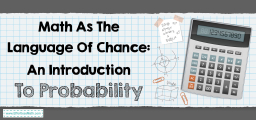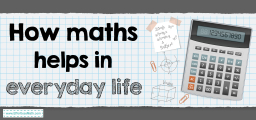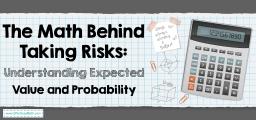How to Understand Convergent and Divergent Series
In the intricate tapestry of mathematical concepts, the study of series stands out as both enigmatic and essential. Series, essentially sums of sequences, may seem straightforward at first glance. Yet, their behavior when extended indefinitely—whether they settle to a finite value or perpetually grow—opens up a Pandora's box of intriguing phenomena. The notions of convergence and divergence capture this behavior, acting as the gatekeepers between the finite and the infinite. This guide embarks on a journey through these concepts, illuminating the intricacies of convergent and divergent series and their pivotal role in a multitude of mathematical and real-world applications.

Step-by-step Guide to Understanding Convergent and Divergent Series
Here is a step-by-step guide to understanding convergent and divergent series:
Step 1: Introduction to Series
- Definition: A series is the sum of the terms of a sequence. For example, the sequence \(a_1,a_2,a_3,… \) can lead to the series \(S=a_1+a_2+a_3+….\)
Step 2: Partial Sums
- Definition: The sum of the first ‘\(n\)’ terms of a series is called the nth partial sum.
- Notation: The nth partial sum is often denoted by \(S_n\). For example, \(S_n=a_1+a_2+…+a_n\).
Step 3: Convergent Series
- Definition: A series is said to be convergent if the sequence of its partial sums approaches a finite limit as \(n\) approaches infinity.
- Intuition: Imagine adding more and more terms to the series. If the sum stabilizes to a certain number (even if you add infinitely many terms), the series converges.
- Example: The geometric series \(\sum_{n=1}^ \infty \frac{1}{2^n}\) is convergent because its sum is \(1\).
Step 4: Divergent Series
- Definition: A series is said to be divergent if the sequence of its partial sums doesn’t approach any limit as \(n\) approaches infinity.
- Intuition: No matter how many terms you add, the sum doesn’t stabilize. It either keeps growing or fluctuating without settling down.
- Example: The harmonic series \(\sum_{n=1}^ \infty \frac{1}{n}\) is divergent because its sum heads towards infinity.
Step 5: Tests for Convergence
There are several methods to determine whether a series is convergent or divergent:
- a. The nth-term test: If the nth term doesn’t approach \(0\) as n approaches infinity, then the series is divergent.
- b. The geometric series test: A geometric series \(S= \sum_{n=1}^ \infty ar^{n}\) converges if \(|r| < 1\) and diverges otherwise.
- c. The integral test: Relates the convergence of a series to the convergence of an improper integral.
- d. Comparison test: Compares a given series with a known series.
- … and many others like the Root Test, Ratio Test, Alternating Series Test, etc.
Step 6: Absolute vs Conditional Convergence
- Absolute Convergence: A series \(∑a_n\) is absolutely convergent if the series of its absolute values, \(∑\)∣\(a_n\)∣, is convergent.
- Conditional Convergence: If a series converges, but not absolutely, it is conditionally convergent.
- Importance: Absolutely convergent series retain their convergence status even when terms are rearranged. Conditionally convergent series do not guarantee this.
Step 7: Applications and Importance
- Mathematics: Series are foundational in calculus, analysis, number theory, and more.
- Physics and Engineering: Used in signal processing, quantum mechanics, and more.
- Economics: Useful in modeling infinite time horizons, like in certain types of financial calculations.
Final Word
Understanding the behavior of series, whether they converge to a finite value or diverge, is essential in many areas of mathematics and its applications. Series that converge have been especially useful in representing functions and solving differential equations, among other things. The vast landscape of series provides tools and techniques that have been instrumental in advancing both pure and applied mathematics.
Related to This Article
More math articles
- How to Define Sine, Cosine, and Tangent
- Full-Length 7th Grade PSSA Math Practice Test
- Line Plot
- How to Study Math Effectively in College?
- 4th Grade STAAR Math Worksheets: FREE & Printable
- Top 10 TABE Prep Books (Our 2023 Favorite Picks)
- How to Factor and Simplify Trigonometric Expressions
- 6th Grade Georgia Milestones Assessment System Math FREE Sample Practice Questions
- How to Solve Inverse Variation?
- Managing Math Fear as an Adult





























What people say about "How to Understand Convergent and Divergent Series - Effortless Math: We Help Students Learn to LOVE Mathematics"?
No one replied yet.